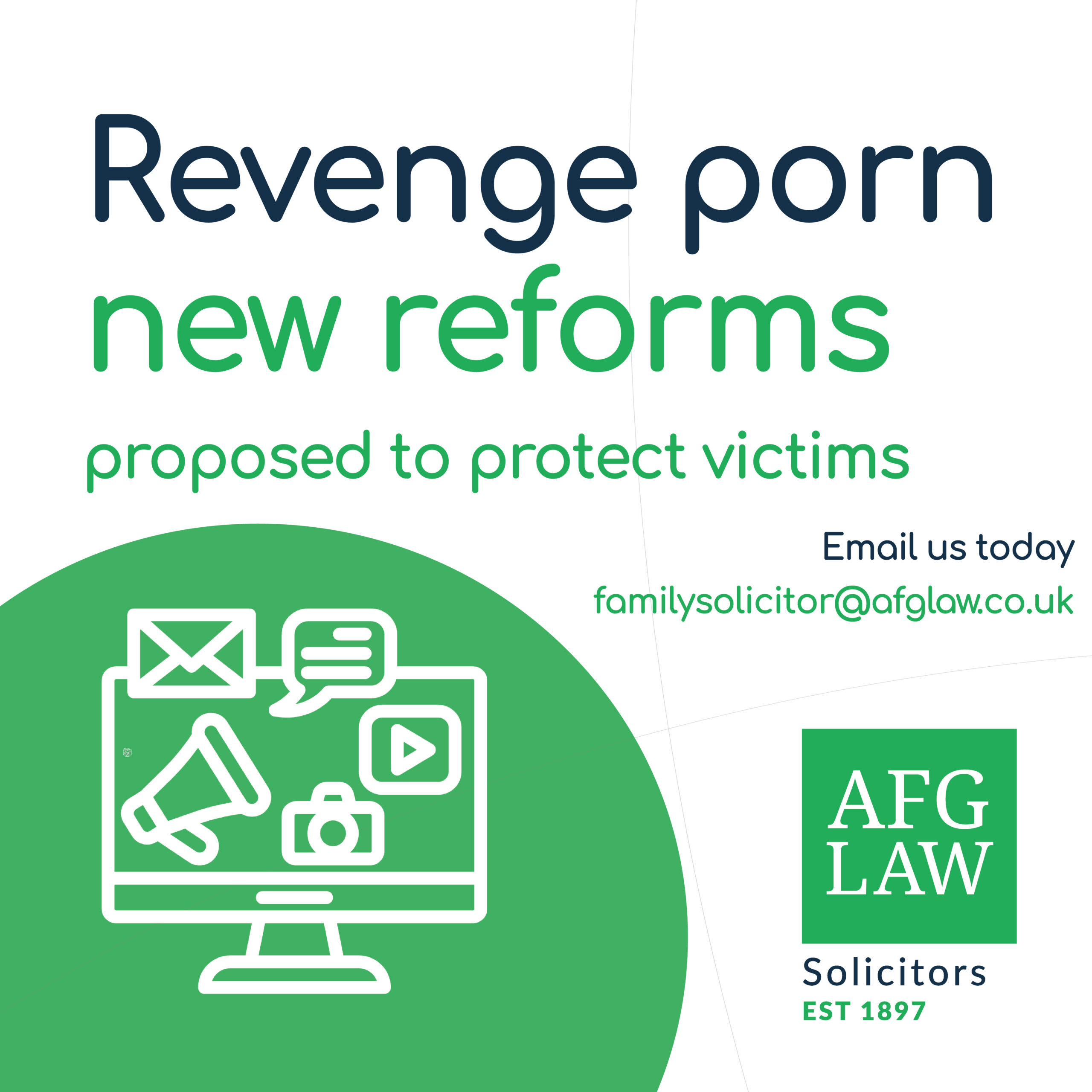Recently, the Law Commission has put forward a proposal to give more protection to victims of domestic abuse where intimate images and videos are involved. A report that has been published indicates that in 2020 the revenge porn helpline reported an 87% increase in cases compared to 2019. The full report and summary can be found here and here.
What is the current law?
In 2015, an offence was created under Section 33 of the Criminal Justice and Courts Act 2015 to disclose private sexual photographs and films without the consent of an individual who appears in the photograph or film, and with the intent to cause distress to that person.
In 2021, with the implementation of the Domestic Abuse Act 2021, the Section 33 offence was widened by Section 69 to include threatening to disclose these images/videos, and also to state that it is not necessary for the prosecution to prove either that the image/video referred to in the threat actually exists, or if it did exist, that it was private.
Sections 67 and 67A of the Sexual Offences Act 2003 made voyeurism an offence, for example recording someone in private without their consent, and included the offence of “up-skirting” which relates to recording or operating equipment under the clothes of another person without their consent.
What do the proposals say?
It is important to note that the proposals make a key distinction between images taken and shared with and without consent – for example nude or partially nude images can often be a form of artistic expression, or to promote body positivity.
The Commission said that the offences as listed above need revising for several reasons.
Motivation
One key reason is because the current offences apply if there was an intent to cause humiliation/alarm/distress to the person in the image/video, or to obtain sexual gratification. The new proposals would make it an offence to intentionally take/share intimate images/videos of people without their consent regardless of their motivation, and would include for financial gain, social status, as a joke, or no motivation at all. The Commission have said that it is not appropriate to require proof of harm, as this could act as a barrier to successful prosecutions.
Altered images/videos
The proposals also widen the scope to include ‘deepfaked’ and digitally altered images, such as a person’s face on a different body to make it look like the person is in an intimate state. The definition of ‘intimate’ would include nude, partially nude, sexual, and toileting.
‘Taking’ and ‘Sharing’
“Taking” involves the ordinary use of the word, i.e., using a camera or other device, but also includes screenshots and screen recording of a live video call. Note that the recommendations do not constitute taking a screenshot of a Snapchat image for example as ‘taking’ however, but rather as ‘retaining’. If an image is retained and then a person threatened to share this image, that would constitute an offence under the proposals as this would be ‘sharing’.
How does this apply in a Family Law context?
The above has been put forward as suggestions on how to expand the criminal offences. Within the family law context, family lawyers can assist clients by applying for a Non-Molestation Order, which would prevent the perpetrator from intimidating, harassing, or pestering a victim, using/threatening violence, contacting/attempting to contact a victim through any means, and other activities.
How AFG LAW can help
Whilst it is not possible to bring a criminal case before the family courts, it is possible to apply for a Non-Molestation Order to stop a person from threatening, harassing, or intimidating a client. A breach of a Non-Molestation Order is a criminal offence, punishable by up to five years’ imprisonment, a fine, or both. It is an automatically arrestable offence and this is why our domestic abuse solicitors will always lodge a non-molestation order with the police to make sure that it is on their system, and they can then action it if needed.
The courts will not make a Non-Molestation Order whilst there are other protections in place, for example if a perpetrator is on bail with conditions not to contact their victim. If a client has been a victim of any of the above current or proposed offences, we would always recommend seeking the police’s help in the first instance. If the police are unable to afford a client protection, we would then look at a Non-Molestation Order.
If you, or someone you know, have been made aware that there are images of you that exist without your consent, or images that you had sent privately which may be shared without your consent, contact our team of specialist domestic abuse lawyers. We can advise you on your options and apply for an urgent Non-Molestation Order if there is a risk of immediate harm to you if the images/videos are shared.
Contact our specailist family team at familysolicitor@afglaw.co.uk or call us on 01204 377600.
